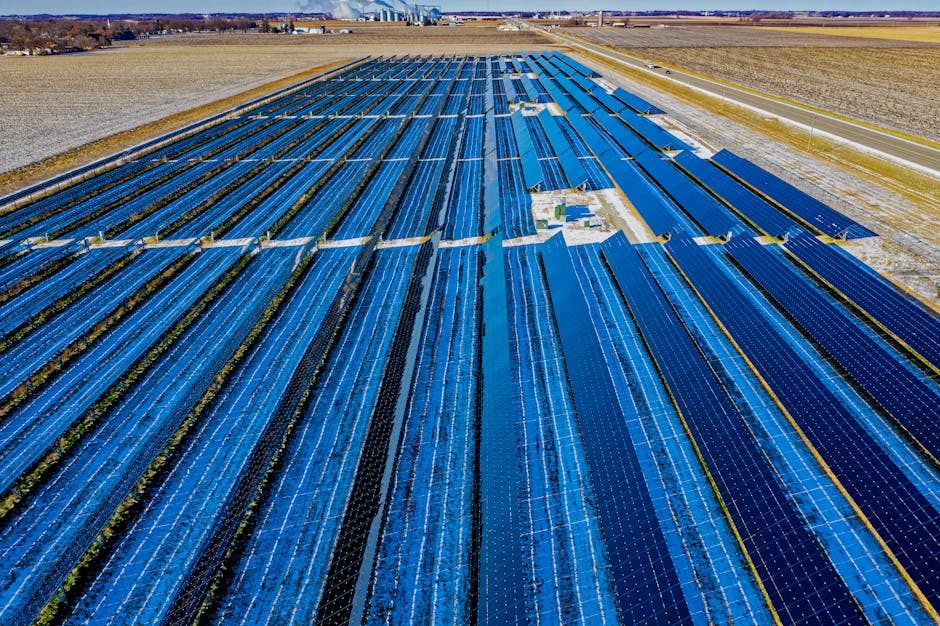Revolutionizing Agriculture: How Electric Vehicles Shape Food Delivery
Imagine a world where electric vehicles (EVs) aren't just the cool new toy in urban landscapes but are also crucial players in the field—a world where they actively support sustainable agriculture and reinvent food delivery systems. As concerns about carbon footprints increase and sustainable practices become more imperative, the integration of electric vehicles into agriculture has emerged as a revolutionary solution. This interaction doesn’t just reduce emissions; it promises a more efficient process from farm to fork, delivering fresher, healthier food while respecting our planet's boundaries.
The Role of Electric Vehicles in Sustainable Agriculture

Electric vehicles are taking the agriculture sector by storm, offering numerous eco-friendly solutions to traditional farming methods. By significantly minimizing greenhouse gas emissions, EVs demonstrate their commitment to sustainability. Farmers are racing to adopt these energy-efficient alternatives, transforming the way food reaches urban consumers.
Consider a typical farm: the daily hustle includes transportation to bring produce to a nearby market. Traditionally, that might mean diesel trucks polluting the air and contributing to climate change. With electric trucks and vans, these trips can now be made with little or no environmental footprint. This transition is crucial for the future, especially as agricultural practices aim to combat climate change—or what experts refer to as "climate-smart agriculture."
Farmers integrating EVs have noted lower operational costs over time. For example, electric tractors are not only quieter but also demand less maintenance. As electric vehicle technology evolves, so too do the possibilities for improved farming logistics. For more insights on how these vehicles are enhancing urban environments, check out our analysis on urban mobility and sustainability.
Case Studies in Innovative EV Adoption

Real-world implementations highlight the potential of EVs in agriculture. Farmers are forging partnerships with companies manufacturing electric machinery. For instance, the electric tractors developed by John Deere have started to enter the market, allowing farmers to carry out planting and harvesting operations with much lower emissions.
An inspiring example comes from a small organic farm in the Midwest. This farm incorporated electric vans for distributing goods to local markets. Not only did it lower the farm's carbon emissions, but it also allowed the farm to market itself as an environmentally-conscious choice for consumers. As word spread, sales increased dramatically—proving that going green can also be profitable.
But, as with any technological revolution, challenges persist. Some farmers express concerns about the high initial costs of EV equipment. Yet, government incentives and grants are emerging to ease these burdens, paving the way for broader adoption.
The Impact on Food Delivery Systems

The influence of electric vehicles extends beyond agricultural activities; they also revolutionize food delivery systems. As urban areas demand more fresh produce with minimal delay, efficient logistics are imperative. Enter electric delivery trucks that can navigate busy streets without leaving behind a trail of pollution.
Companies like Amazon and Walmart are investing heavily in electric delivery fleets to ensure efficiency from farm to urban center. The introduction of these vehicles cuts delivery times and enhances the freshness of products reaching consumers; they arrive with almost zero carbon footprint in comparison to their gasoline-guzzling counterparts.
Explore the transformative effects of EVs on urban delivery in our post, how EVs are reshaping traffic dynamics.
From Farm Production to Consumers: Streamlining Logistics

Transportation from farm to consumer is a complex issue. Typically, it involves several logistical challenges: produce must be efficiently transported while maintaining quality and reducing waste. Electric vehicles play an instrumental role in overcoming these challenges.
With advanced GPS technology, some EVs can optimize routes to minimize transit time, thereby ensuring that produce remains fresh. By leveraging smart technology, farmers can track their products through the supply chain, ensuring they reach the consumer at peak freshness.
Additionally, partnerships between farmers and local grocery stores are on the rise. These collaborations often involve sharing transport logistics through electric vehicles, which helps maintain a close connection between the source of the food and the community consuming it. Urban consumers are increasingly eager to support local businesses, and food delivery through EVs creates that bridge, promoting not just sustainability but also community engagement.
Challenges and Barriers to Adoption

While the benefits of EVs in agriculture and food delivery are substantial, challenges remain. The initial investment in electric vehicles and infrastructure can be prohibitive for some farmers, especially those in less affluent regions. Additionally, the availability of charging stations remains uneven, with rural areas often lacking the necessary infrastructure.
Moreover, some stakeholders express concerns about the range of electric vehicles. Extensive routes may pose challenges, requiring proper planning and possibly hybrid solutions during transitional phases. However, these barriers are gradually being addressed, as demand for electric solutions within the agricultural industry grows.
The Future of Electric Vehicles in Sustainable Agriculture

So what lies ahead? As technology continues to improve and awareness about sustainability escalates, we anticipate a surge in electric vehicle adoption within the agricultural sector. The integration of other technologies, such as autonomous driving, could further enhance agricultural efficiency and logistics in food transportation.
Statistics show that the global electric vehicle market is projected to grow at a CAGR of around 25%, indicating that more options will become available for farmers looking to modernize their fleets. Furthermore, as social consciousness around environmental issues increases, consumer pressure will influence agricultural practices and delivery systems to align with sustainability goals.
If you wish to understand the broader ramifications of electric vehicles in urban planning and infrastructure, you might find useful information in our article on urban architecture influenced by EVs.
Bridging Communities with Food and Sustainability

The movement towards utilizing electric vehicles in agriculture represents far more than an operational shift. It fosters a renewed sense of community. The interactions between farmers, consumers, and local businesses strengthen ties and promote local economies, creating an ecosystem grounded in sustainability.
Consumers are becoming increasingly aware of where their food comes from and the environmental impact of food delivery. Using electric vehicles builds transparency in the food supply chain, giving consumers the confidence that their choices contribute positively towards sustainability.
Incentives and Support

Governments worldwide are recognizing the crucial role of electric vehicles in sustainable farming. They are stepping up with incentives and funding opportunities to assist farmers in making the switch to electric machinery. This support not only alleviates initial costs but also promotes innovation within the agricultural sector.
A well-crafted policy framework can further ensure that farmers transition successfully. Programs dedicated to education about EV benefits and best practices can demystify the technology, making it accessible to everyone in the agricultural sector.
The Road Ahead: Strategies for Sustainable Adoption

Farmers and stakeholders in the agricultural community will need to adopt strategic measures to facilitate the transition to electric vehicles. Forming cooperative networks can serve as a robust strategy, enabling communities to share resources—such as EV charging stations—and streamline costs.
Moreover, local governments can incentivize the establishment of necessary infrastructure, such as charging stations, especially in rural regions lacking robust electric networks. As partnerships between local businesses and farms become the norm, consumers will see greater access to local, sustainable goods while contributing to the responsible use of the earth’s resources.
Final Thoughts
Electric vehicles are not merely an innovation in technology; they signify a shift towards more sustainable practices that benefit both farmers and consumers alike. As we witness the blossoming relationship between EVs and the agricultural sector, it is evident that they will play a significant role in the future of food delivery.
By leveraging electric vehicles, agriculture can thrive while respecting environmental limits, ensuring that we enjoy fresh, healthy options without compromising our planet. Embracing sustainability from farm to fork has never been more crucial, and electric vehicles are leading the charge.



